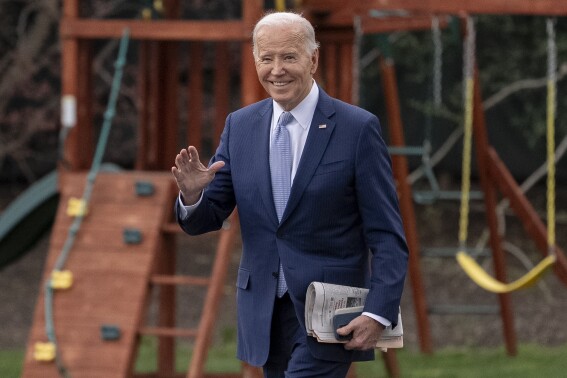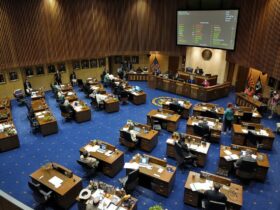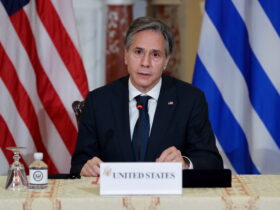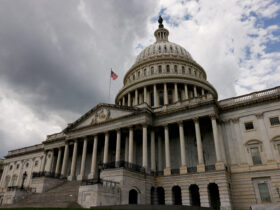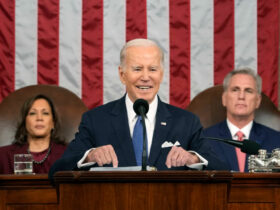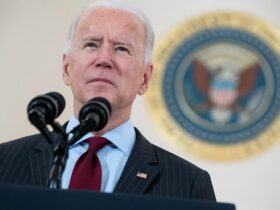United States: President Biden signed a USD 1.2 trillion spending bill around Saturday small hours, putting an end to the question of a government shutdown after the bill passed congressional votes in a hurried process and yet got the endorsement from both parties.
The event implied that if by midnight on Friday, the measure is not signed into law, the government will face a shutdown.
However, as the Senate clock struck that hour, the White House released a declaration that federal officials at the Office of Management and Budget had “ceased shutdown preparations” in anticipation of swift approval from the Senate and be signed into law by Mr. Biden.
In a statement, the president welcomed the signing as “good news for the American people.” He, however, did express frustration at having to navigate six months of legal discussions to arrive at the late signings on both sides of the aisle, saying that they were “compromises,” and both sides “didn’t get everything they wanted.”
Mr. Biden stated that the spending deal “rejects extreme cuts from House Republicans and expands access to child care, invests in cancer research, funds mental health and substance use care, advances American leadership abroad, and provides resources to secure the border that my administration successfully fought to include,” as the New York Times reported.
The 1,012-page package mingles together the last six of 12 annual appropriations bills that would fund the essential service areas through the 30th of September, the end of the fiscal year. It was the deadline that after months of tooth-and-nails negotiations passed Congress four stay-activation measures.
Legislators wrote the bill that Mr. Biden signed into law on Saturday in such a way as to fall in line with the debt and spending deal agreed to last year by the then Speaker of the House, Mr. Kevin McCarthy, and Mr. Biden. As for domestic programs, the plan simply advocated leaving the budgetary aggregate at its present level.
It is important to note that the hard-right Republicans in the House opposed this bill, even though there were bipartisan supporters on both sides of the party lines.
After it was predicted that it would pass, Representative Marjorie Taylor Greene, a Republican from Georgia, began the process of asking for a vote to Oust the Speaker, that is, Christopher Johnson.
To be more specific, a little later almost 60 percent of Republicans voted against the bill and it passed a 286 to 134 vote. This ended up with a tighter vote in the House, with 51 to 49 in favor, while in the Senate it was more lopsided with 74 to 24, as the New York Times reported.
The Democrats and the Republicans, both, spoke about the conquest of certain provisions in the final deal. Funding for 2,000 new Border Patrol agents, additional detention beds under the control of Immigration and Customs Enforcement, and a provision to stop aid to the main United Nations agency which provides the Palestinians aid are seen as key lobbies by the Republicans.
To mention but a few, Democrats supported both federal child care and education. This was coupled with increased funding for cancer and Alzheimer’s research.

